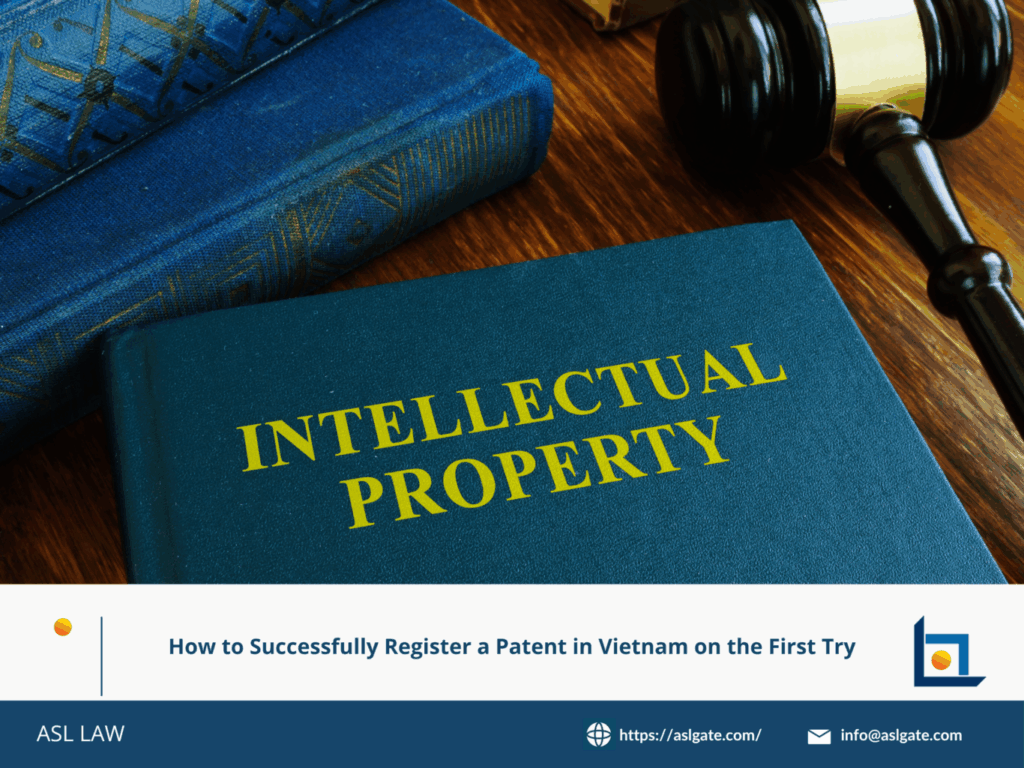Patents are strategic intellectual assets for businesses and inventors, especially in the fields of technology, engineering, and manufacturing. File patent in Vietnam not only grants exclusive commercial rights but also enhances investment appeal, facilitates technology transfer, and mitigates legal risks.
However, the rejection rate of Vietnam patent remains high, often due to deficiencies in formality, substantive content, or lack of a coherent registration strategy. So how can applicants increase the chances of being granted patent protection on their first submission?
1. Prepare a complete and technically compliant application dossier
One of the most common reasons for patent application rejections is failure to meet technical documentation standards. A proper patent specification must clearly present: (i) the patent title; (ii) the relevant technical field; (iii) the known state of the art; (iv) the technical essence of the invention; and (v) implementation examples. Technical drawings and claims must also be consistent and clearly articulated.
The language used in the description must be precise and unambiguous, especially in the claims section, which determines the legal scope of protection.
2. Meet protection standards: novelty, inventive step, and industrial applicability
To qualify for filing patent in Vietnam, a technical solution must satisfy three criteria: novelty, inventive step, and industrial applicability. Specifically:
- Novelty requires that the invention has not been disclosed publicly anywhere in the world before the filing date.
- Inventive step means the invention must not be obvious to a person of ordinary skill in the relevant technical field.
- Industrial applicability requires that the invention can be practically implemented and delivers the promised technical effect.
Conducting international patent searches and reviewing publicly available technical disclosures is essential to assess compliance with these requirements.
3. Choose the right registration strategy: patent or utility solution?
Not every technical solution needs—or should be—registered as a “patent,” which carries strict protection standards. In many cases, registering as a utility solution may be more suitable for practical improvements that lack sufficient inventive step for a full patent.
Analyzing and determining the appropriate registration form from the outset can help save time and costs, while also improving the likelihood of approval. Additionally, businesses intending to expand internationally should consider priority claims under relevant patent treaties.
ASL Law is a leading full-service and independent Vietnamese law firm made up of experienced and talented lawyers. ASL Law is ranked as the top tier Law Firm in Vietnam by Legal500, Asia Law, WTR, and Asia Business Law Journal. Based in both Hanoi and Ho Chi Minh City in Vietnam, the firm’s main purpose is to provide the most practical, efficient and lawful advice to its domestic and international clients. If we can be of assistance, please email to [email protected].
ASL LAW is the top-tier Vietnam law firm for Intellectual Property Services. If you need any advice, please contact us for further information or collaboration.

 Tiếng Việt
Tiếng Việt 中文 (中国)
中文 (中国) 日本語
日本語

